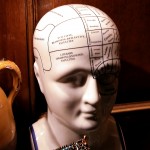Do we all have a “brain age”?
 Do we all have a “brain age”? Are all brain exercises equal? Does aging mean decline?
Do we all have a “brain age”? Are all brain exercises equal? Does aging mean decline?
Answering these questions probably requires to debunk a few myths about the brain.
Understanding how our brain functions can help understand how it is possible for our brain to change, and what we can do to make these changes happen. This is why knowing how our brain works is the first habit to acquire on the road to boosting brain functions.
Wouldn’t it be very hard for a musician to get better at playing the clarinet if he didn’t know that it is the air that his mouth pulses into the instrument that creates its sounds? In the same way limited knowledge about the brain may be one of the reasons why many people do not take action to try to optimize the way their brain work.
Here are 10 Brain and Brain Fitness Myths, debunked for you:
|
MYTHS
|
FACTS
|
| 1. Genes determine the fate of our brains. | Lifelong neuroplasticity allows our lifestyles and actions to play a meaningful role in how our brains physically evolve, especially given longer life expectancy. |
| 2. Aging means automatic decline. | There is nothing inherently fixed in the precise trajectory of how brain functions evolve as we age. |
| 3. Medication is the main hope for cognitive enhancement. | Non-invasive interventions can have comparable and more durable effects, side effect-free. |
| 4. We will soon have a Magic Pill or General Solution to solve all our cognitive challenges. | A multi-pronged approach is recommended, centered around nutrition, stress management, and both physical and mental exercise. |
| 5. There is only one “it” in “Use It or Lose it”. | The brain is composed of a number of specialized units. Our life and productivity depend on a variety of brain functions, not just one. |
| 6. All brain activities or exercises are equal. | Varied and targeted exercises are the necessary ingredients in brain training so that a wide range of brain functions can be stimulated. |
| 7. There is only one way to train your brain. | Brain functions can be impacted in a number of ways: through meditation, cognitive therapy, cognitive training. |
| 8. We all have something called brain age. | Brain age is a fiction. No two individuals have the exact same brain or expression of brain functions. |
| 9. That brain age can be reversed by 10, 20, 30 years. | Brain training can improve specific brain functions, but, with research available today, cannot be said to roll back one brain age by a number of years. |
| 10. All human brains need the same brain training. | As in physical fitness, users must ask themselves: What functions do I need to improve on? In what time frame? What is my budget? |
This table comes from The SharpBrains Guide to Brain Fitness. Consider reading the book to learn more brain maintenance and what products are available to keep your brain sharp.
Keep learning by reading more articles in the Resources section


